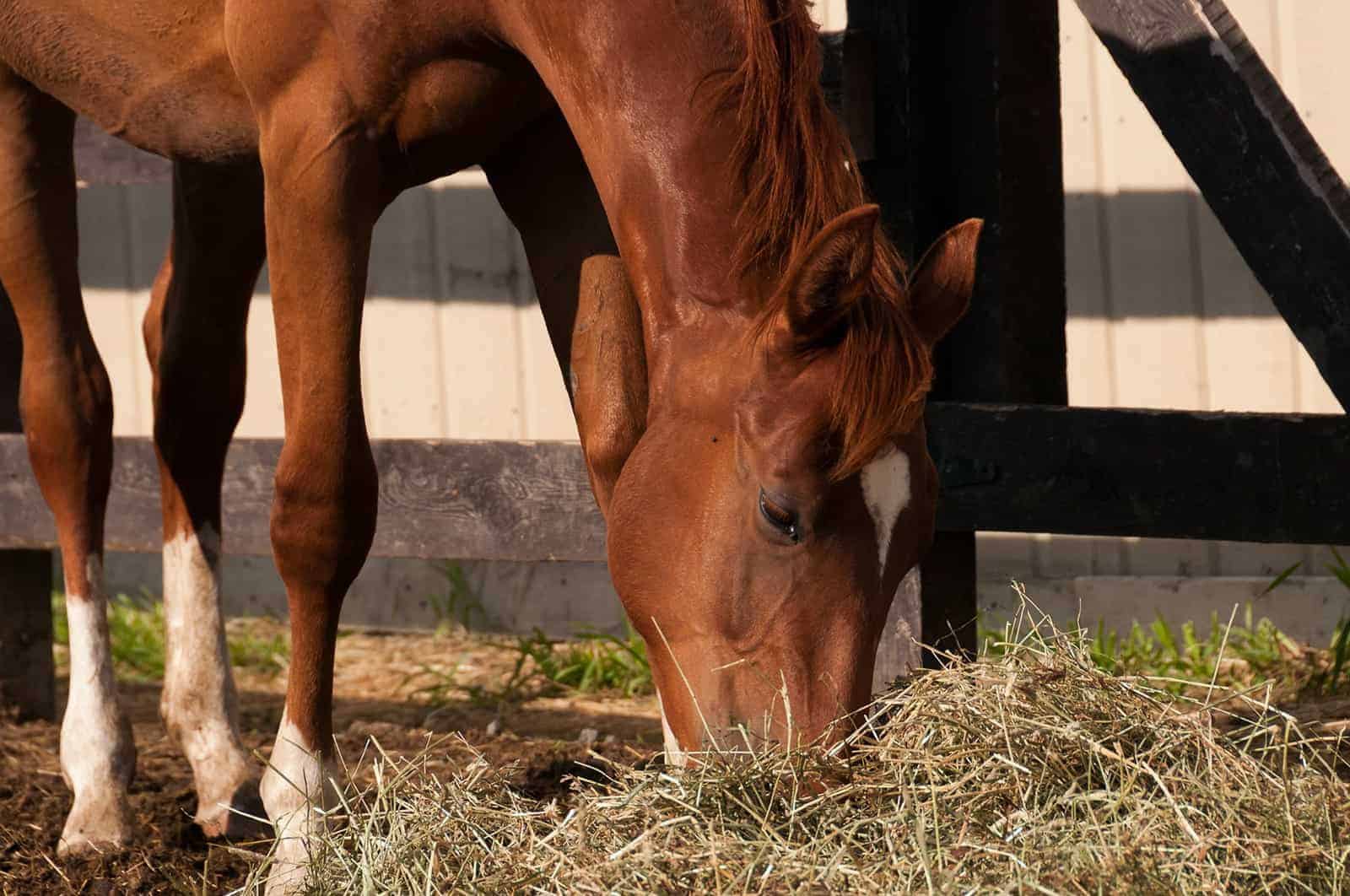Trace Mineral Basics: Iron

It’s not just the heart and lungs that help circulate oxygen in the body. Iron (Fe) is a key component of hemoglobin (a blood protein) and myoglobin (a muscle protein), both responsible for oxygen transport in their respective environments. It is also found in macrophages (white blood cells that engulf and remove foreign particles), linking Fe to immune function, as well.
Interestingly, Fe utilization increases in deficient diets and decreases when horses consume excess cadmium, cobalt, copper, manganese, and zinc. Newborn animals absorb Fe more efficiently than mature animals.
Requirements and Sources
The National Research Council’s Nutrient Requirements of Horses (NRC 2007) states that an average 1,100-pound (500-kilogram) mature horse requires 400-500 milligrams of Fe per day. Intake requirements vary for pregnant and lactating mares and growing foals
Create a free account with TheHorse.com to view this content.
TheHorse.com is home to thousands of free articles about horse health care. In order to access some of our exclusive free content, you must be signed into TheHorse.com.
Start your free account today!
Already have an account?
and continue reading.
Written by:
Nettie Liburt, MS, PhD, PAS
Related Articles
Stay on top of the most recent Horse Health news with















